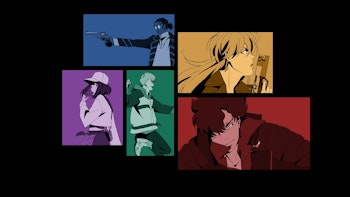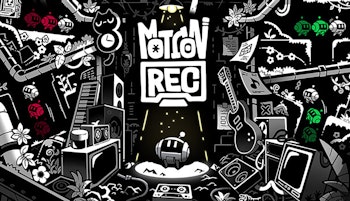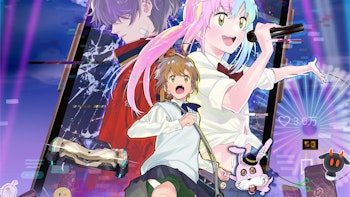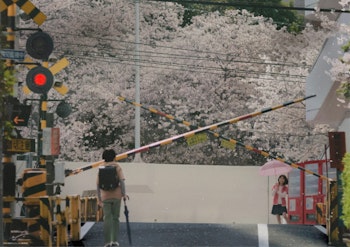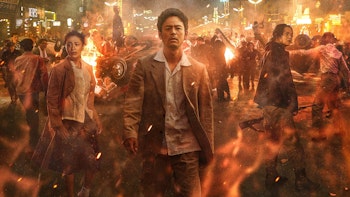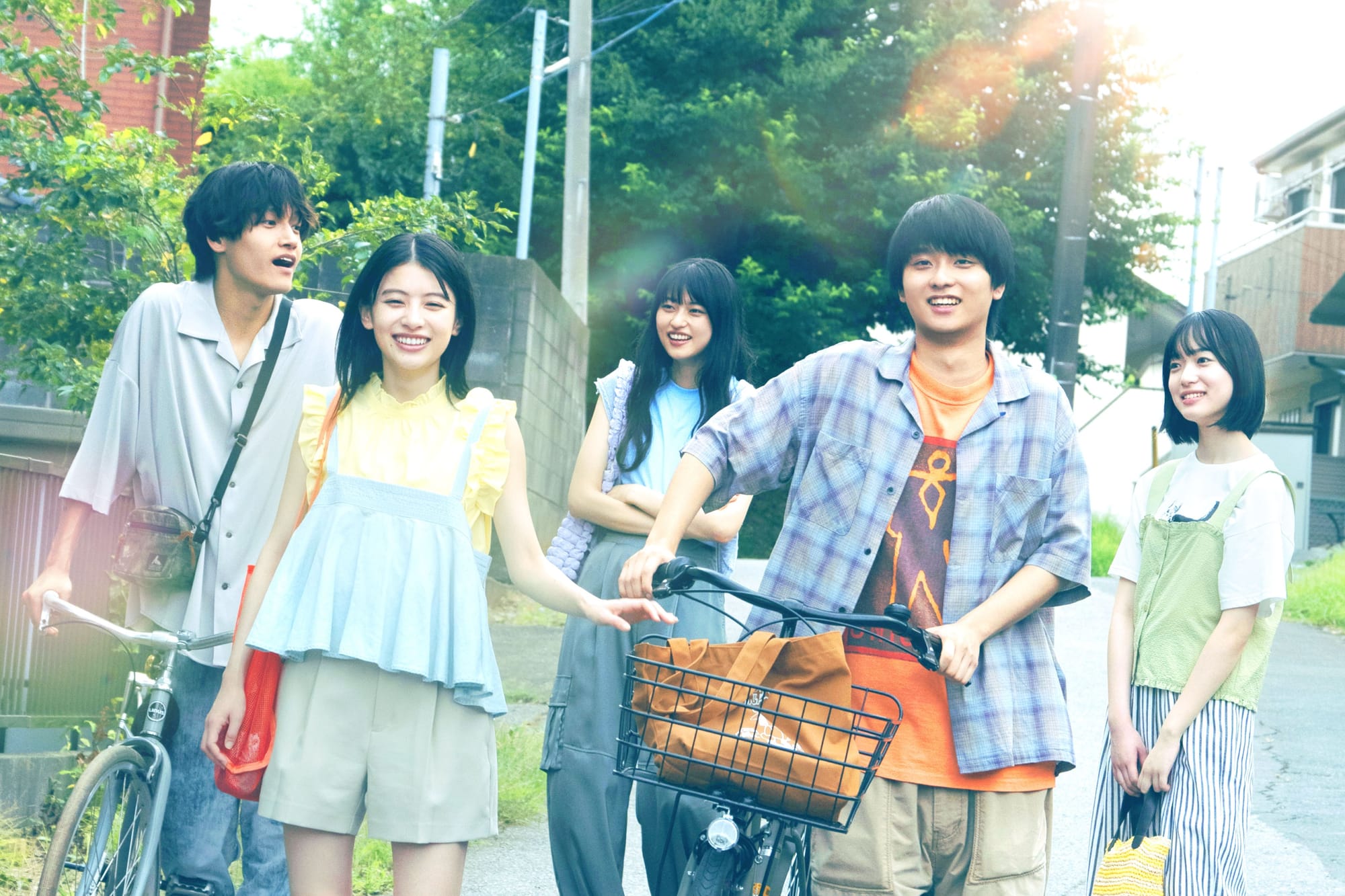
There’s often a played-out familiarity to your typical coming-of-age school drama or romance story. You have kids on the cusp of adulthood navigating their next steps, high school crushes so strong they’re unbearable, and in many cases, a school festival, group trip or intense entrance exam season where all this tension comes to a head. I Have a Secret is not free from these flashpoints, but even beyond its supernatural twist, it’s strong writing and a complex vulnerability to all of its characters that elevate this film far beyond mere cliché to something that feels genuinely fresh and engrossing.
The film is adapted from the novel of the same name by Yoru Sumino, the same author behind the award-winning I Want to Eat Your Pancreas that itself has previously been adapted into both anime and live-action feature films. The story follows five classmates in their last two years of high school, each with their own supernatural powers that allow them a window into the emotions of others. Kyo Otsuka (Daiken Okudaira) is an unconfident and shy boy with a crush on the outgoing popular student, Naoko Miki (Natsuki Deguchi). Instead of acting on his feelings, he watches from afar as she hangs out with her friends including Kuroda Fumi (Hinako Kikuchi) while spending his days talking to his longtime friend Takasaki Hirofumi (Masaya Sano).
It’s when the shy and reserved Nozomi Miyasato (Hayase Ikoi) stops coming to school one day that the relationships between everyone begins to change.
Navigating friendships in school is difficult enough, but each of these characters has the hidden ability to visually see the relationships and feelings of others manifested in different ways. For Kyo, it’s in the form of punctuation, question marks and exclamations shooting and bouncing from the heads of everyone in sight that can also change color to express deeper intricacies like anger. Miki can see a see-saw on everyone’s chest that jerks between positive and negative feelings. It manifests for the others in the form of seeing the pace of someone’s heartbeat, the suites of a deck of cards, or arrows directly pointing out the romantic connections people have for one another.
Seeing these concerns made manifest makes them naturally more sensitive to even tiny ways that how or what they say can fundamentally impact people’s mood, but it doesn’t give them a cheat code to the web of high school social life either. Complimented with a nostalgic yet unromantic portrayal of the challenges of navigating these stressful teenage years, there’s a frank agony to the joy and turbulence of adolescent romance enhanced by these powers that’s hard not to become infatuated with. If anything, these powers are even more of a burden on everyone’s attempts to connect with those around them, the ability to see inside their minds only making them feel more vulnerable through a degree of clarity that lacks the answers to deep connections they seek.
Kyo is considerate and kind, shy is not in spite of his ability to see exclamations of the internal shifts in emotions of the people around him but because of it. A mere comment on Nozomi’s shampoo has caused her to begin skipping school for over a month, so why would he risk saying anything else? Being a classmate is enough, and sticking to himself ensures he can’t hurt anyone.

Not just for Kyo but everyone, these manifestations are as much a window into others as they are emblematic of their own insecurities. Miki can understand what inspires or deflates people through her balancing act visual aid, but all it gives her is the ability to see everyone confident in their path what their future holds while she’s clueless. A teacher tells her what inspired her to be an educator, and the only clarity she has is wanting to be a ‘hero, not a heroine’. Meanwhile Hirofumi is perceived as cool, but the reason he sees the frosty club and fiery hearts of others is because no matter how assured he appears, he is just as insecure as everyone else.
Each character gets their moment in the spotlight via a chapter-driven storytelling approach told from their individual perspective over the course of these final years of school life, an approach lifted directly from the original novel. Rather than feeling rigid and conforming, limiting the freedom for this story to be told beyond the confines of Yoru’s original vision, it’s an approach that compliments everyone involved. Each actor gets their moment in the spotlight that reveals their hidden private world to the audience with the intricacies that weaves the difficult needle of ensuring no character in a large ensemble cast is ignored.
Everyone impresses in their role too, with particular plaudits for Hayase Ikoi who, with just one prior co-lead performance in a movie before this point and still of school age herself, gives arguably the best performance of the entire film.

You can even see why this story appealed to director Shun Nakagawa in its execution, with a similar time-sensitive tale of the lives of school kids on the cusp of adulthood that drove their debut feature, Sayonara Girls. While that was a flawed but intriguing debut following three girls in a far more limited timeframe on their final two days before graduation, it was a showcase of their potential as a director, and the lessons learned in how to capture the inner turbulence and a relatable school life are visible on screen.
In a genre where many school stories strive for cookie-cutter perfectionism and the clean pastiche of the nostalgic school days of their aging directors, this thrives in the in-between and imperfections of the modern realities of teenage life. As more mainstream films embrace the relatable flaws of humanity in some of the most celebrated (and profitable) human dramas of recent years such as We Made a Beautiful Bouquet, only now are we beginning to see this youth-driven desire fueled by the rise of social media elsewhere.
With more voices than ever, audiences want authenticity, and the biggest success stories in every medium from J-pop to literature to film has seen this. Of all the genres of film attuned to such desires, it's surprising that only now are we finally seeing this seep into the landscape of teenage dramas as a new generation takes the wheel. It gives the film a modern sensibility that comes from more than merely replacing discussions of new CDs with questions about streaming services.

Rather than a core focus, these supernatural powers are more of a background instigator, one that eventually leads to these characters becoming close even as they continue to be oblivious to the abilities of one another. It offers relatable reassurance to those growing up today, a heartfelt story of love and friendship that I can see as more supportive for struggling teenagers and a welcome contrast to the typical escapist fare. Through a deft script and great acting, I Have a Secret is positively ordinary considering its concept, and soars because of that.
Though we may only glimpse the secret worlds of these young kids, our own lives are enriched because of it.
